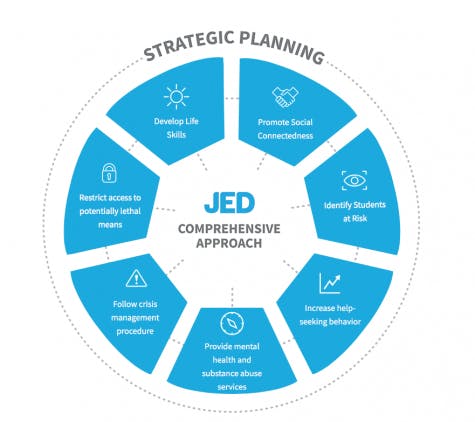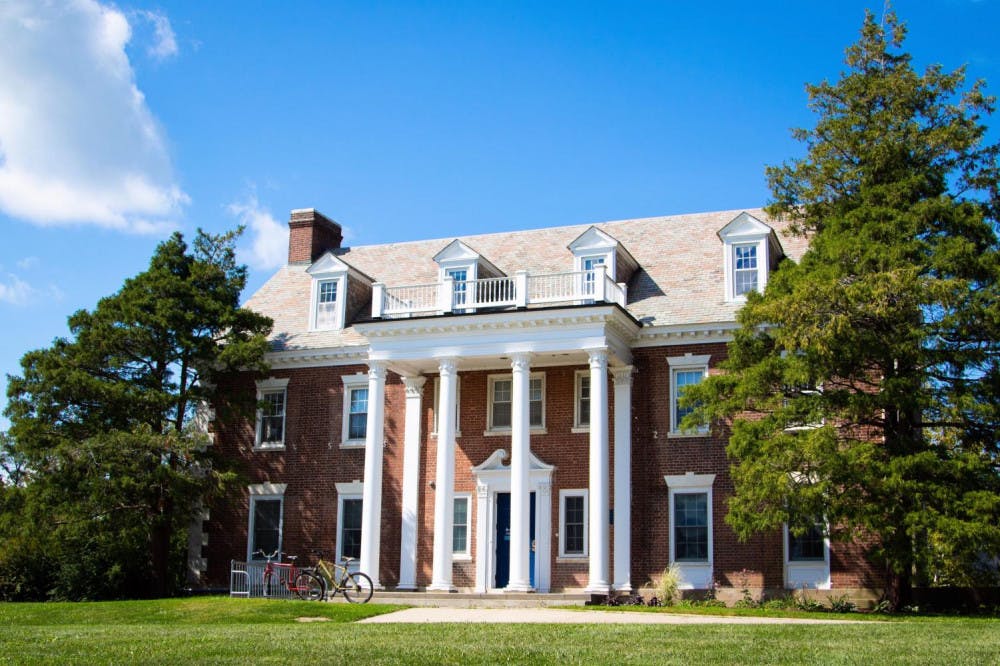Parton Center for Health and Wellness will make changes to its mental health offerings beginning this fall, after joining a national program earlier this year which helps schools improve their suicide prevention services as well as support for substance abuse and other mental health issues.
The program will be led by the JED Foundation, a public health organization that seeks to improve access to mental health services. The program at Middlebury will take four years to fully implement and will cost $22,000. An anonymous donor is covering the cost in full.
The donor offered the funding to three schools in Vermont. “We imme-diately raised our hand,” said Director of Health and Counseling Services Gus Jordan. Other schools that have implemented the JED program in-clude Connecticut College, Hamilton and the University of Vermont.
Parton is currently in its first year of the program, which consists of “evaluation.” This phase is set to conclude by the end of May. The next two years will consist of “implementation,” and the final year will consist of another “evaluation.”
The first evaluation phase included a mental health survey sent to students this Fall.
There is more demand now than ever before for mental health services. The number of students seeking counseling has increased every year, according to Jordan. In response, in 25 years, the number of counselors has increased five-fold. There are now seven counselors on staff and three interns, as opposed to two counselors in 1995. Parton now holds over 3,600 counseling sessions per year, and over 26% of the student body has interacted directly with a counselor in the last year.
The Campus is currently investigating student claims that campus mental health services exhibit flaws in their availability and quality. An investigation evaluating student experiences with those services will be published before the end of the semester.

COURTESY PHOTO
The “Comprehensive Approach” displayed on the JED Campus website.
The “Comprehensive Approach” displayed on the JED Campus website.
The changes coming to Parton next year may include staffing changes within the counseling department. “The number of students that we are able to see will definitely not go down, and it might go up,” Jordan said. Restructuring the counseling center’s hours may contribute to an increase in student access.
Other possible changes include making counseling available to students abroad, the creation of support groups for mental health issues and the creation of a counseling app.
However, the changes from the JED program will reach beyond counseling sessions.
“I would suspect in the next two years to train multiple constituencies on campus around how to spot mental issues early, how to intervene where issues are mild to moderate and how to refer to counseling issues that are serious,” Jordan said.
Although residential life staff already receives training in this area, upcoming changes could include training for coaches and incoming faculty members, who are not trained.
Increased attention toward mental health is the most recent change to Parton, which at one point was a 24-hour infirmary. “I came here in 2000,” said director of health services Mark Peluso. “Before my time Parton was over in Carr Hall, and there were lots of beds,” Peluso said. “The whole second floor was an infirmary, there was a ‘house mother,’ they called it. She was loved, she took care of students when they were sick.” Parton stopped offering overnight care in 2005, and now there is only one bed in Parton. Other recent changes have included the addition of a sexual assault examiner, HIV pre-exposurere sources and the addition of a nurse phone number.
Although the JED program may result in staffing changes, dean of students Baishakhi Taylor stated there would be no involuntary staff cuts at Parton. However, some employees in Parton are eligible for the staff incentive separation plan that was introduced as part of the college’s workforce planning initiative, which seeks to cut staff and faculty compensation costs. This incentive offers staff members a separation package based on their salary and how long they have been at the college.
The JED program will, however, reach beyond Parton. “This is a campus-wide mental health initiative,” Jordan said. “I hope everybody in one way or another will be involved.”
Comments




